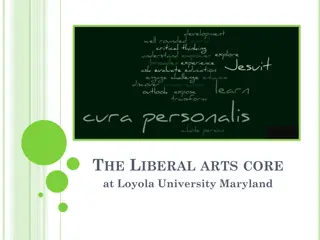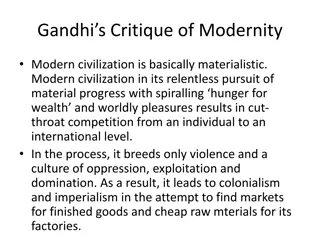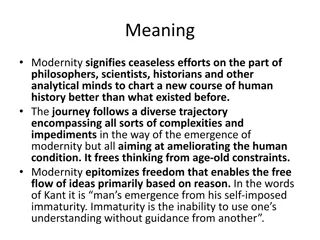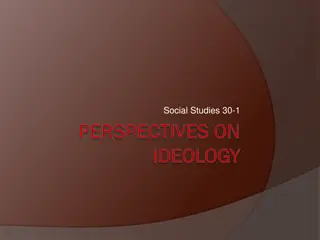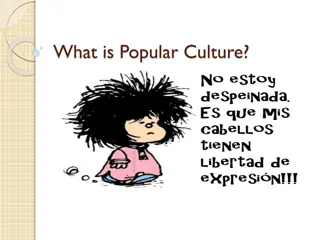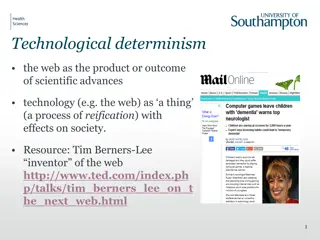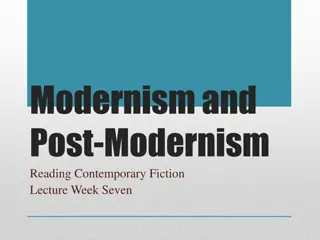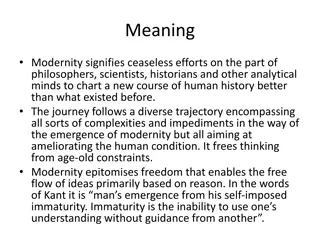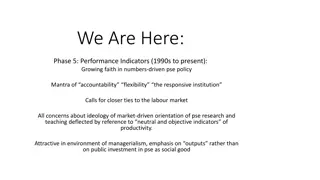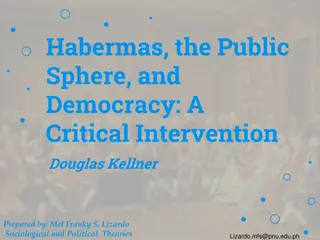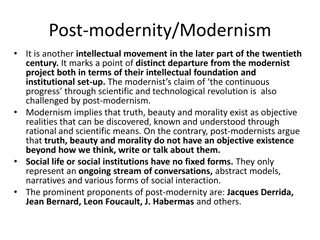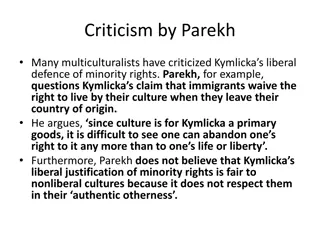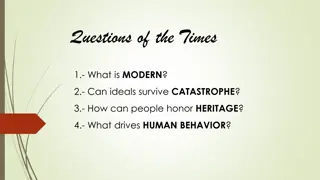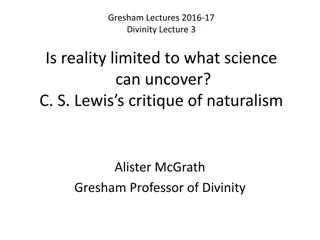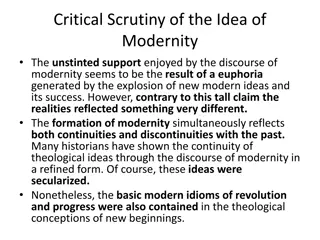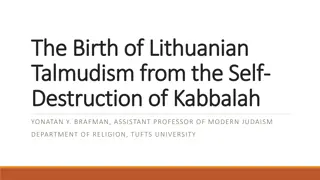Critiques of Modernity and Liberal Ideology: Marcuse and Habermas
Herbert Marcuse's concept of One-Dimensional Man critiques capitalism's impact on human freedom and alienation in Western society. Marcuse emphasizes awakening individuals to their alienation to ignite their urge for freedom. Jurgen Habermas, in contrast, focuses on rational critique rooted in human capacity for communication, highlighting the importance of non-instrumental rationality. Both scholars provide insights into challenging dominant ideologies and promoting genuine human liberation.
Download Presentation

Please find below an Image/Link to download the presentation.
The content on the website is provided AS IS for your information and personal use only. It may not be sold, licensed, or shared on other websites without obtaining consent from the author. Download presentation by click this link. If you encounter any issues during the download, it is possible that the publisher has removed the file from their server.
E N D
Presentation Transcript
Herbert Marcuses Concept of One- Dimensional Man In conformity with the dialectical critique of modernity and liberal ideology, Marcuse, a prominent scholar of the Frankfurt School, underlined the subjective, critical and humanist dimension of Marxism. Marcuse dwelled on the theme of alienation in contemporary Western society and gave a penetrating critique of capitalism as regards its impact on human freedom. According to him capitalism exercises monopolistic control not only on production and distribution, it also creates the desire and demand for commodities through a clever manipulation of the mass media. The result is the widespread craze for consumer goods which develops into a distorted second nature of an
Herbert Marcuse(contd.) Consumer capitalism renders the oppressed sections insensitive to their original discontent, by stimulating their trivial, material desires which can be easily satisfied. Under the spell of gratification of these trivial desires, the genuine urge for freedom disappears. Thus, the alienated human beings become unaware of their alienation. Under the circumstances, they should first be awakened to realize their condition of alienation in order to arouse their urge for freedom. It will be a democratic community where work will become play, and necessary labour will be organized in harmony with liberated, and authentic, individual needs.
J. Habermas on Human Capacity for Communication Jurgen Habermas was as emphatic as earlier theorists in his critique of instrumental rationality of liberalism. He maintains that it is possible to find non-instrumental rationality but rational criteria in reference to which a social critique may be formulated. The significance of such criteria lies in the fact that they provide the basis for a critical assessment of our shared beliefs and values and of institutions they find an embodiment, such as our legal and political arrangements. These values and institutions form what Habermas refers to as our lifeworld that always carries the possibility of coming under the influence of a system which is heavily in favour of dominant sections. In such an eventuality, we may turn towards rational scrutiny of the life world and highlight its distortion.
Human Capacity for Communication: The Basis of Rational Critique According to Habermas, the basis of rational critique lies in the human capacity for communication for language use. Habermas hints at the universal value of the standard of language and communication and thus its importance. Such standards are appealing because they are genuinely universal and are derived from the logic of language use itself. They transcend the particular, and potentially flawed, beliefs and values that we have established in our actual social communication. Habermas argues that whenever we use language, we implicitly commit ourselves to certain key criteria. These consist of truth, sincerity, moral appropriateness and intelligibility.
Ideal Speech Situation Habermas draws the contours of such a communication in the form of the ideal speech situation . This makes the possibility of communication free from distortions, hidden agenda, biases or arbitrary closure. Such discussions are not only rational but are also guided by the force of better argument alone ensuring all participants an equal chance to speak, to make an argument or express a point of view. This is how such kind of communication helps to arrive at a rational consensus. Even if distortions creep into the communication of a kind, there is a need to raise the level of such communication from a particular to the general level of social conversation in order to identify the distortion and to eliminate them. Such an eliminating process emerges out of Habermas critique of modern liberal capitalist societies.


